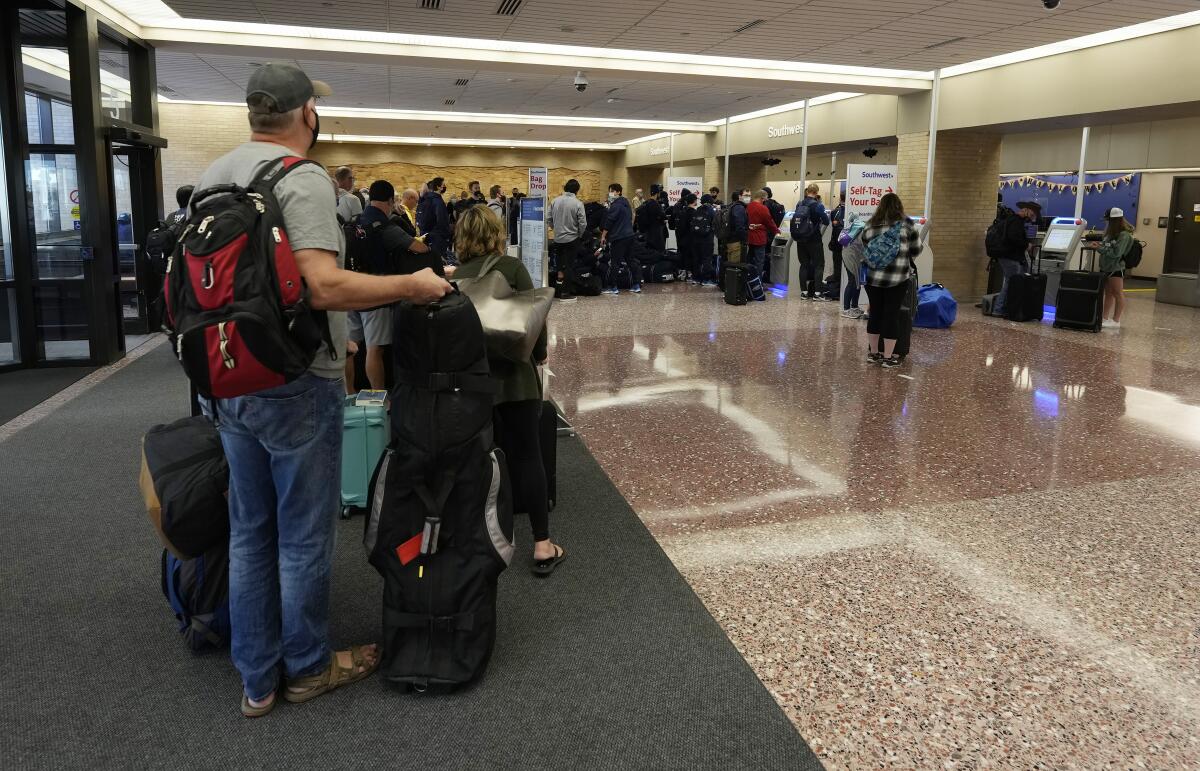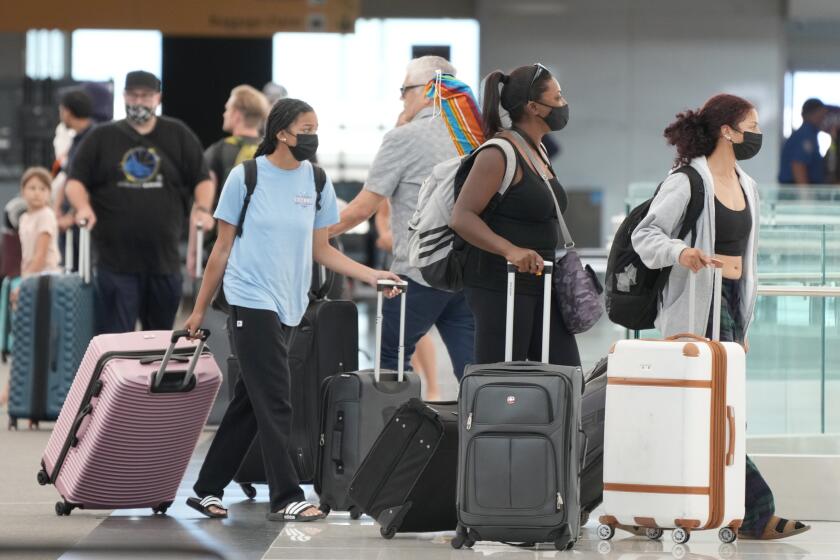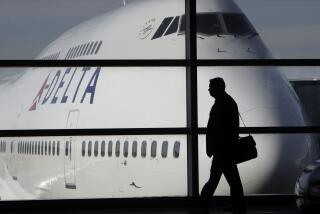Flight canceled? Getting a refund might become easier

Responding to a “flood of air travel service complaints” during the pandemic, the U.S. Department of Transportation proposed rule changes Wednesday to make it easier for airline passengers to collect refunds for canceled or delayed flights.
As travel demand has surged to near pre-pandemic levels, airlines have conceded that they often don’t have the staff needed to operate the flights, causing a surge in cancellations and delays — and in complaints from travelers who say airlines have been slow to offer refunds.
Current rules require U.S. airlines to pay refunds and flight vouchers for cancellations and “significant changes” to flight schedules but do not clearly define “significant changes.” As a result, refund policies vary among the airlines, according to consumer advocates.
“This proposed rule would protect the rights of travelers and help ensure they get the timely refunds they deserve from the airlines,” U.S. Transportation Secretary Pete Buttigieg said in a statement.
The summer travel season has been chaotic. Industry insiders put much of the blame on airline executives who scheduled thousands of extra flights to cash in on demand.
Under the proposed rule, a “significant change” can mean a change to the departure and/or arrival time by three hours or more for a domestic flight or six hours or more for an international flight. The definition of “significant” also includes a change to the departure or arrival airport, an increase in the number of connections and a change to the type of aircraft if it means the passenger’s experience is downgraded.
Under the new rule, flight credits or vouchers would be valid indefinitely when passengers can’t fly for pandemic-related reasons, such as a government-mandated ban on travel or border closures. The rule also requires that airlines pay refunds, rather than travel credits or vouchers, if the company “received significant government assistance related to a pandemic.” Most of the nation’s largest carriers received funding in 2020 and 2021 under the Coronavirus Aid, Relief and Economic Security Act to avoid mass layoffs.
“I’m happy with the fact that the Department of Transportation is now looking at this,” said Charles Leocha, president of Travelers United, an airline consumer advocacy group. But Leocha would like the agency to go further by shortening the three-hour window for changing domestic flights to 90 minutes.
The Department of Transportation issued more than $2 million in fines against Air Canada in November 2021 over what the agency described as “extreme delays” in providing refunds to thousands of consumers for flights to or from the U.S. that were canceled. The agency says it is pursuing fines against 10 other airlines for similar delays in paying out refunds.
A spokesperson for a trade group that represents that nation’s largest carriers declined to comment on the proposed rule but said the airlines “provide the highest level of customer service and are committed to working with travelers to address their individual circumstances.”
U.S. airlines issued nearly $13 billion in cash refunds in 2020 and more than $8 billion in 2021, according to the trade group Airlines for America. Complaints about refunds among airline passengers have been dropping since May 2020, according to the group.
The airline trade group last month posted a statement conceding that the carriers are still struggling to overcome pandemic-related problems.
“The learning curve to our nation’s ‘new normal’ is steep, and U.S. airlines are adapting and implementing long-term solutions as quickly as possible to ensure smooth operations. We acknowledge that our work is not done which is exactly why we will continue listening to our customers and acting to show our commitment to safety, service and you,” the post said.
Despite the increase in demand, airlines are struggling to return to the financially rosy period before the pandemic, when most carriers reported record profits. In the first quarter of 2022, U.S. airlines reported a net loss of $5.1 billion, according to the U.S. Bureau of Transportation Statistics.
The Aviation Consumer Protection Advisory Committee, a panel that advises the Department of Transportation, will hold its first hearing on the proposed rule Aug. 22 in Washington, D.C., but anyone interested can attend the meeting via Zoom after registering online. Members of the public can submit comments on the proposed rules at www.regulations.gov, docket number DOT-OST-2022-0089.
More to Read
Inside the business of entertainment
The Wide Shot brings you news, analysis and insights on everything from streaming wars to production — and what it all means for the future.
You may occasionally receive promotional content from the Los Angeles Times.












